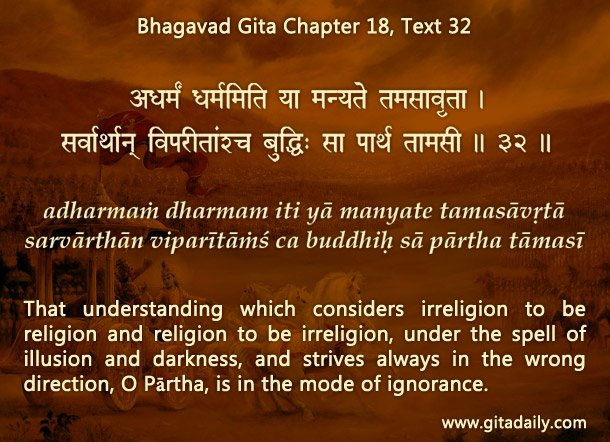We rarely do things without a reason but reason is rarely behind the things we do
Suppose someone does something stupid or terrible. If they are asked why they did what they did, they usually come up with some justification for their actions. Even criminals who do ghastly deeds rationalize their actions. We humans have enough intelligence to justify whatever we want to believe.
We ourselves too come up with reasons to justify whatever actions we do. If we are to truly make wise choices, we need to check if the reasons we give for our actions are actually good. Which reasons are good reasons? Those that are based on sound scriptural understanding. Scripture provides time-honored ethical and spiritual values that help us mold our lives for our all-round growth.
If we aren’t scripturally guided, we often use our intelligence to arrive at understandings that are actually misunderstandings. By such misunderstanding, we come up with unreasonable reasons. These are reasons that can make sense if we want them to make sense, but they don’t add sense; they don’t make us more sensible. And they don’t add value to our life – they make us fritter away our precious time in activities that are at best frivolous and at worst disastrous.
The Bhagavad-gita (18.32) states that the intelligence which foists and fosters misunderstanding is intelligence in the mode of ignorance. To avoid such misunderstandings, we need to raise our consciousness from the lower modes of ignorance to the higher mode of goodness and beyond it to transcendence, whereby whatever intelligence we have is used constructively, not destructively.
When we study and live scripture, our intelligence becomes spiritually oriented, thereby ensuring that the reasons we come up with are not just sensible but also positively transformational.
Think it over:
- How do we come up with unreasonable reasons for our actions?
- What reasons for our actions are good reasons?
- How can we ensure that our reasons for our actions are good reasons?
***
18.32 That understanding which considers irreligion to be religion and religion to be irreligion, under the spell of illusion and darkness, and strives always in the wrong direction, O Pārtha, is in the mode of ignorance.
To know more about this verse, please click on the image
Explanation of article:
https://www.youtube.com/watch?v=RUp46j9r564&feature=youtu.be
Podcast:


nice thoughts